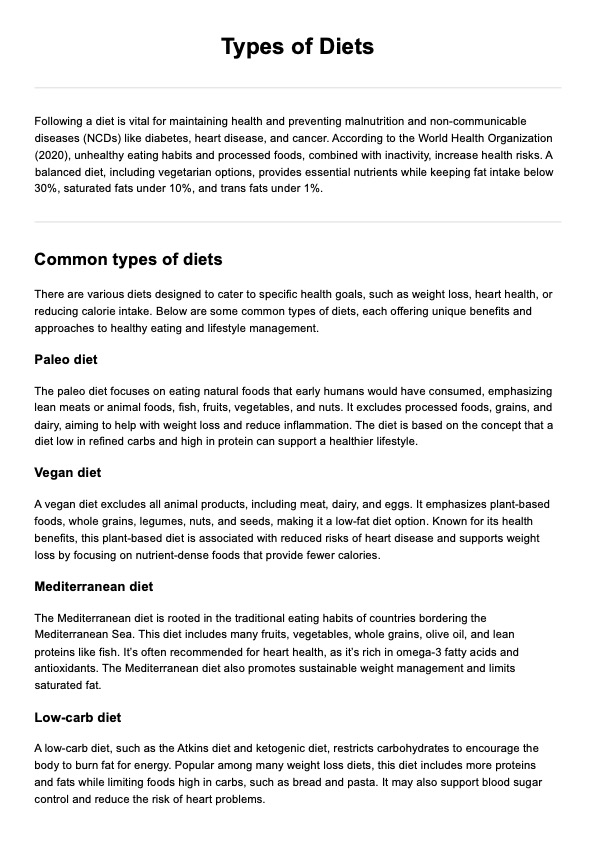Different types of food diets include the Mediterranean diet, which emphasizes fruits, vegetables, whole grains, and healthy fats; the paleo diet, which focuses on lean meats and avoids processed foods; and the vegan diet, which excludes all animal products. Other popular options are low-carb diets, DASH diets for blood pressure management, and gluten-free diets for those with gluten sensitivities.

Types of Diet PDF
Get our free Types of Diet PDF Template to help health professionals guide patients in choosing diets that align with their goals and needs.
Types of Diet PDF Template
Commonly asked questions
The best diet for weight loss is one that is sustainable and fits an individual's lifestyle, preferences, and health goals. Popular choices include the Mediterranean diet and low-carb diets, as they emphasize whole foods and balanced nutrition while promoting healthy calorie intake.
An effective diet is one that provides balanced nutrition, includes a variety of foods, and promotes healthy eating habits that can be maintained long-term. It should also consider individual preferences and health needs, ensuring that the chosen plan is both enjoyable and conducive to achieving specific health goals.
EHR and practice management software
Get started for free
*No credit card required
Free
$0/usd
Unlimited clients
Telehealth
1GB of storage
Client portal text
Automated billing and online payments











